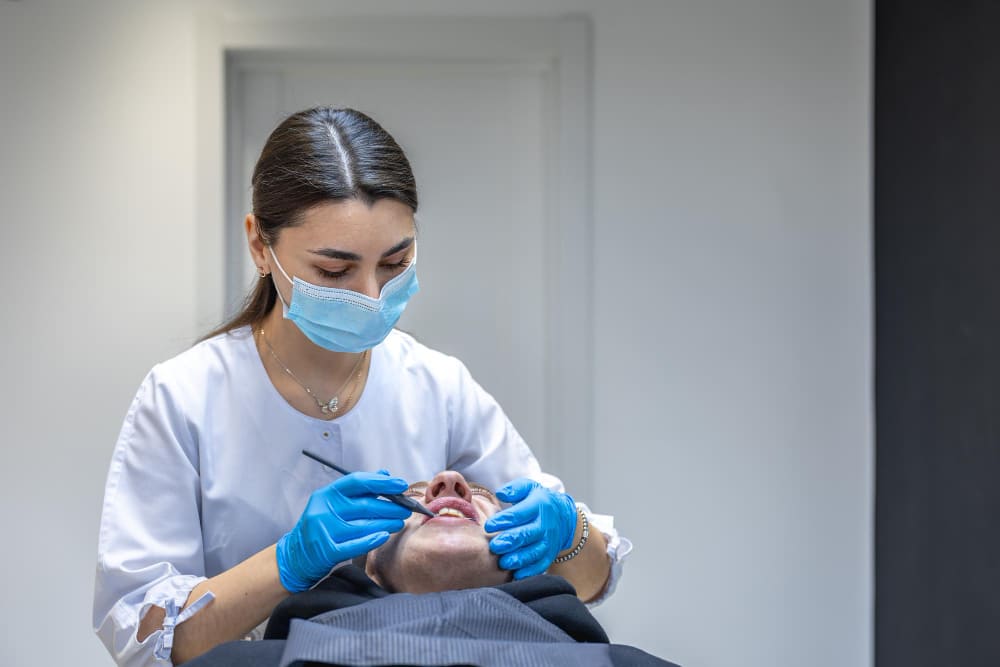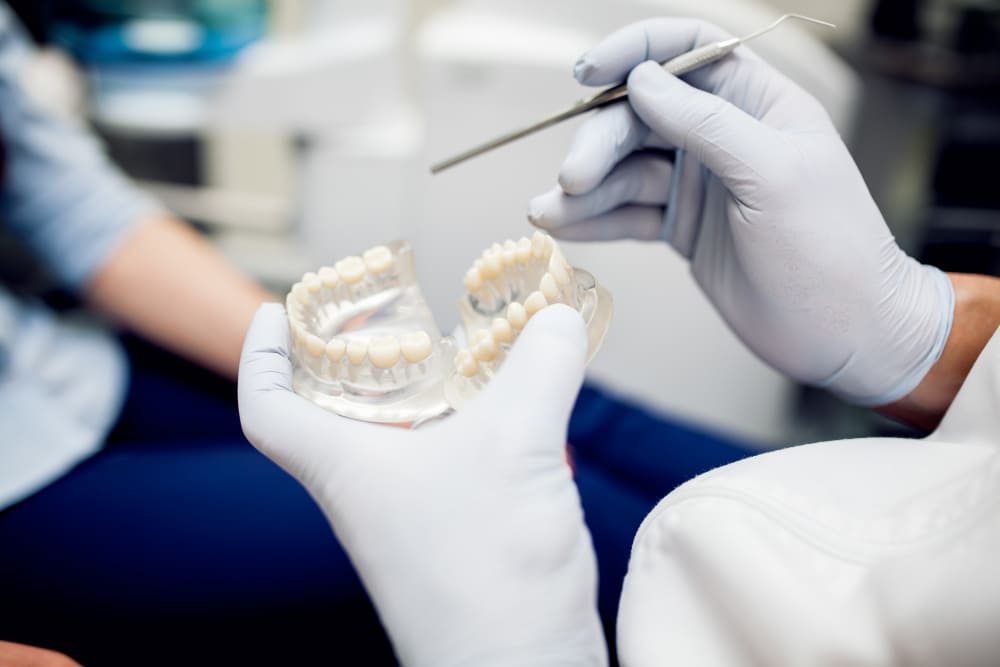Tooth extraction or oral surgery may be necessary for several reasons, primarily to relieve pain, prevent the spread of damage, or prepare your mouth for future restorative or orthodontic treatments.
Common situations where an extraction or minor oral surgery is recommended:
 Severe Decay or
Damage: If a tooth cannot be saved and must be removed to protect surrounding teeth.
Severe Decay or
Damage: If a tooth cannot be saved and must be removed to protect surrounding teeth. Impacted Wisdom
Teeth: Wisdom teeth (third molars) often become impacted, requiring removal due to pain,
infection, or damage to adjacent teeth.
Impacted Wisdom
Teeth: Wisdom teeth (third molars) often become impacted, requiring removal due to pain,
infection, or damage to adjacent teeth. Overcrowding &
Orthodontics: Teeth may need to be removed to create necessary room for orthodontic treatment
(braces) to achieve a proper bite.
Overcrowding &
Orthodontics: Teeth may need to be removed to create necessary room for orthodontic treatment
(braces) to achieve a proper bite. Advanced Gum
Disease: When gum disease has advanced to damage supporting bone and tissue, extraction may be
necessary to improve overall oral health.
Advanced Gum
Disease: When gum disease has advanced to damage supporting bone and tissue, extraction may be
necessary to improve overall oral health. Tumours or Cysts:
Removal of a growth or cyst found in the mouth may require minor oral surgery.
Tumours or Cysts:
Removal of a growth or cyst found in the mouth may require minor oral surgery.
Here at Dental Concepts, we offer both local anaesthetic and conscious sedation to help you relax during any oral surgery. We will ensure that you are fully numbed up before proceeding so you stay comfortable throughout. Our priority is to manage any anxiety and ensure a pain-free experience. Give the team a call to discuss your sedation options.
The surgeon examines your mouth, takes X-rays, and provides instructions (e.g., fasting time).
Receive local, sedation, or general anaesthesia to keep you comfortable and pain-free.
The procedure is performed, followed by monitoring until the effects of anaesthesia wear off.
You receive full aftercare instructions and scheduled appointments to ensure proper healing.
Ankylos dental implants are a highly stable and durable system used to replace missing teeth. Characterised by their unique, screw-retained design, they provide a strong foundation for the restoration. The system is made up of a titanium implant body and an abutment, surgically placed into the jawbone, with the crown then attached to the abutment.

A fixed prosthetic device used to replace missing teeth, restoring function and aesthetics.
Know More
A foundational procedure to rebuild jaw bone density, preparing you for successful dental implants.
Know More
Treating and preventing infection of the tissues supporting your teeth to preserve long-term health.
Know More
Gentle and effective treatment to remove infection and save your natural tooth from extraction.
Know More
Effective treatments and preventative care to stop the breakdown of tooth enamel and eliminate painful cavities.
Know More